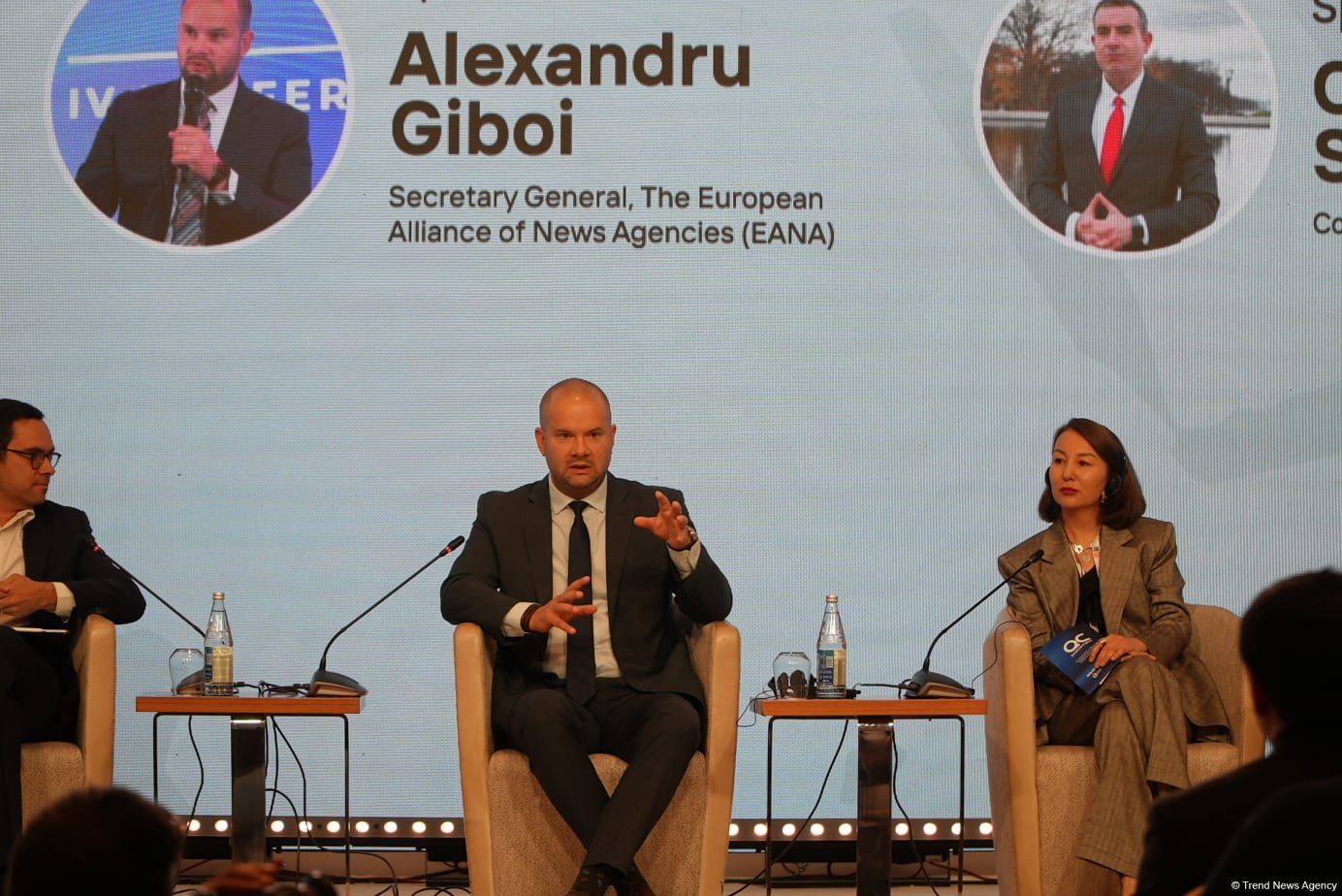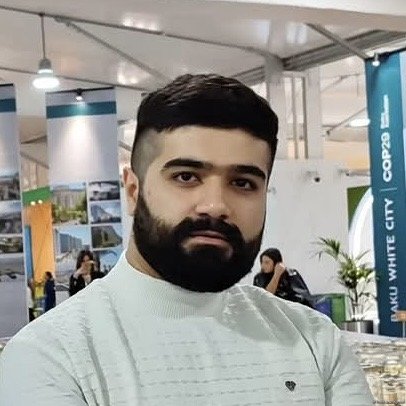SHUSHA, Azerbaijan, July 20. People should be approaching information they read in the media with critical thinking, said Alexandru Giboi, Secretary General of the European Alliance of News Agencies (EANA), in his address at the 3rd Shusha Global Media Forum, Trend’s special correspondent reports.
Giboi warned against the "relativization" of truth. “That’s one of the dangers of the informational landscape that we live in, this relativization,” he said. “The fact that, from time to time, you see opinions that try to instill the view that there is more to something than meets the eye”.
While encouraging critical thinking, he cautioned against taking it to extremes. “Critical thinking is really important because it helps any person understand that they need to recheck information, they need to reasonably question what they see, what information they’re being fed, and the key word here is reasonably,” Giboi stressed. “I have friends who have turned from reasonably questioning information that they see to questioning everything. And I wouldn’t really want to live in a world in which I question everything I see, specifically because I see a lot of things, I’m exposed to a lot of information”.
He emphasized the importance of relying on trained professionals for credible information. “Basically, when you’re sick, you go to the doctor. When you’re sick, you don’t go to your neighbor who says that he read online something about your potential sickness. It’s the same thing with journalism,” he said. “If you want trustworthy, quality information, you go to the people who are specialists in that. You go to the people who have been educated on that”.
He also underscored the distinction between merely expressing an opinion and practicing journalism. “No offense to everybody in this room, but you’re not journalists, mostly. I mean, everybody can do what a journalist does, but that does not make them a journalist,” Giboi noted. “Because anybody can have an opinion on sickness, or on war, or on politics, but that doesn’t make them a doctor, or a politician, or a war expert”.
Trust, he said, is an essential component of the public’s
relationship with the media - and one that needs defending. “Trust
is very important. The ones who call you not to trust, and to
question everything, that’s where probably you should have a second
look at”.
Turning to solutions, Giboi emphasized the role of cooperation
among professional media organizations as a remedy to fragmentation
and misinformation. “And this is when, of course, cooperation comes
in,” he said. “It really answers your question”.
He spoke proudly of EANA’s inclusive and diverse membership. “I’m happy and honored to run the largest association of news agencies in Europe, and the most important in the world, in my opinion, which is the European Alliance of News Agencies,” he said. “We have 33 members from 33 European countries. We have AZERTAC from Azerbaijan as our valued member also. We have a very diverse membership. We have private news agencies, we have public news agencies, we have state-run news agencies. And we welcome all of them, because we understand that collaboration between all of these entities, in the end, will lead to positive outcomes for everyone involved”.
He praised Trend News Agency for its international engagement and commitment to trustworthy journalism.
“A very good example is the partnership I have with Trend News Agency, the largest private news agency in Azerbaijan. They’re focused on the international side. They are extremely well-quoted outside the country,” Giboi noted. “We have a project bringing together other news agencies to generate content from the Balkans and Central Europe. And we do this because we know the value of trustworthy information. We know the value of reliable sources that have already been confirmed,” he said.
Giboi described the many forms cooperation can take, reinforcing the spirit of exchange. “Cooperation can take many forms. It can take the form of news exchange. It can take the form of journalism exchange. It can take the form of practice, of good practice examples, right, which can be used from one media organization to the other”.







